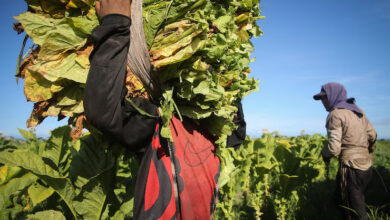Slice Pizzeria Owner Xolani Dube Ventures into Horticulture to Strengthen Supply Chain

Bulawayo entrepreneur and Slice Pizzeria owner Mr Xolani Dube has taken a strategic step to bolster his business by venturing into horticulture farming as part of a backward integration plan aimed at creating a self-sufficient supply chain. This move is designed to improve operational efficiency, reduce reliance on external suppliers, and ensure consistent quality in the ingredients used across his popular pizzeria outlets.
Backward integration is a business strategy where a company gains greater control over its supply chain by acquiring or merging with its suppliers. By doing so, the company can better manage raw material costs, production quality, and supply consistency. For Slice Pizzeria, this approach marks an important milestone as the brand continues to evolve in a competitive food industry.
Mr Dube, whose farm is located in Insiza North, Matabeleland South, explained that producing key ingredients internally would maximise profits and enhance product quality. “This will ensure we produce most of the ingredients used in our operations to maximise profits,” he said.
The announcement follows recent recognition of Slice Pizzeria’s success. The business was named MSME of the Year at the Zimbabwe National Chamber of Commerce (ZNCC) 2025 Matabeleland Annual Business Awards (MABAs). The accolade highlights the brand’s growing influence in the market.
Speaking about the award, Mr Dube said: “The award shows that someone, somewhere recognises and appreciates what we are doing as a brand. It’s a motivation for us to continue improving. This belongs to the staff (team players). This award does not put us in a comfortable zone but pushes us to work harder and achieve more.”
With two outlets already thriving in Bulawayo’s central business district (CBD), the Dube family is setting its sights on expansion into other cities, towns, and growth points across Zimbabwe. Mr Dube shared that the business is investing heavily in digital systems to streamline operations and strengthen customer engagement.
“This will involve using technology to transform various aspects of our business, from internal processes to customer interactions, ultimately leading to improved efficiency, increased productivity, and a competitive advantage,” he explained. “We will use data to gain insights into performance, identify trends, and make informed decisions. Through e-commerce, we will also sell goods and services online via a website or mobile application.”
Central to the company’s growth strategy is the focus on backward integration. The newly established farm will supply key horticulture products such as potatoes, lettuce, tomatoes, onions, and cucumbers—core ingredients for the pizzeria’s offerings. This will allow Slice Pizzeria to ensure ingredient quality while mitigating the risks associated with supply shortages and price fluctuations in the open market.
Slice Pizzeria’s journey began in October 2013 when the Dube family, returning from the diaspora, opened their first outlet at the corner of Fife Street and 12th Avenue in Bulawayo. A second outlet was launched in 2021 along Joshua Mqabuko Nkomo Street, aligning with the government’s efforts to create a more business-friendly environment for entrepreneurs.
Beyond business growth, Mr Dube remains committed to corporate social responsibility (CSR). Slice Pizzeria actively supports orphanages, schools, and underprivileged communities in both Bulawayo and Insiza North. This reflects the family’s broader vision of using business as a platform to drive positive social impact.
With its dynamic blend of innovation, community engagement, and a forward-thinking approach to supply chain management, Slice Pizzeria continues to set an inspiring example of how Zimbabwean businesses can thrive in today’s challenging economic landscape.




